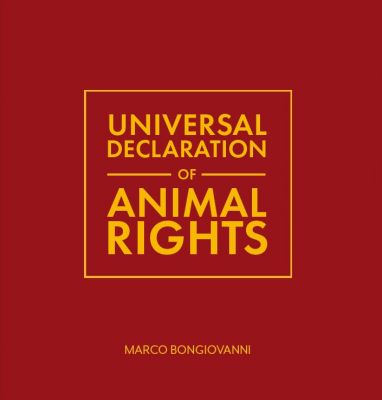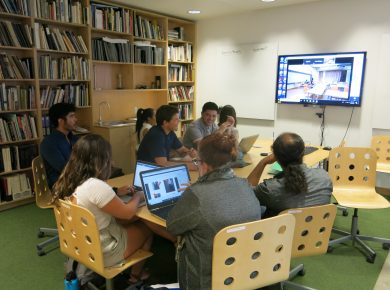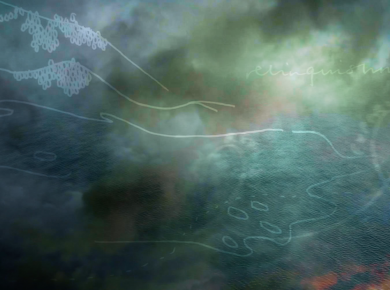“I agree with the principle that all human beings possess intrinsic dignity and value… but, in elevating our species, we should not lower the status of other highly intelligent species.” Justice Fahey in Nonhuman Rights Project v. Lavery (2018)
This year marks the 70th anniversary of the adoption of the Universal Declaration of Human Rights (UDHR) by the United Nations General Assembly on December 10th 1948. Notwithstanding the very real shortcomings of the UDHR, many of which have been redressed by subsequent international human rights treaties, it nonetheless represents a watershed moment in moral progress. Prior to the founding of the UN and the adoption of the Declaration, individuals were widely regarded as mere ‘objects’ of states under international law with no rights of their own. Governments could discriminate against their subjects, strip them of citizenship and even exterminate them without legal censure.
The atrocities that took place in Europe during the Second World War were a major catalyst for moving away from this exclusively state-centred view of international relations. As Johannes Morsink notes in his meticulous historyof the drafting of the UDHR, the Holocaust was the single most important event that shaped its writing.
The UDHR recognises that ‘all human beings are born free and equal in dignity and rights’ regardless of their race, sex, national origin or other status and that ‘Everyone has the right to recognition everywhere as a person before the law.’ It thus represented a landmark stage in humanity’s expanding circle of ethical concern, beginning with the family and then extending to the tribe, the nation, and presently, to all of humanity.
But did the Universal Declaration go far enough? After all, the vast majority of the earth’s inhabitants are nonhuman. There is estimated to be between 1 and 2 million animal species on this planet and just as individual humans are particularly vulnerable to abuses of power, so too are animals particularly vulnerable to abuse at the hands of humans. The tyrannical exercise of human power over the other animals is ubiquitous, whether it’s subjecting them to painful biomedical experiments, destroying their natural habitats, forcing them to perform in circuses and aquariums, or industrially rearing and exterminating them for food. Are we systematically violating the rights of animals when we treat them like this? Ought we take steps to rectify this with a Universal Declaration of Animal Rights?
Only Human Rights?
Perhaps there is a justifiable basis for enshrining human rights in international law and not animal rights. A common response that defenders of human rights give is that humans have rights simply by virtue of their humanity. However, such a response is either question-begging or a fundamentally unsatisfactory attempt to ground rights. Humanity is a mere biological category like skin colour or sex. Yet the UDHR and the idea of international human rights were born precisely in opposition to the idea, embraced by the Nazis, that individuals could be denied rights, dignity or personhood simple by virtue of biological or anatomical features over which they have no control.
Another way to justify human rights whilst denying animal rights is by appealing to specific capacities that humans possess that mark them out from other animals. One such claim is that we are made in the image of God and thus have a special moral status. Even if we grant for the sake of argument that God exists, experience informs us that we should be profoundly sceptical of claims about who does and does not matter according to the will of God. History is replete with examples of ‘heretics’, ‘non-believers’ and ‘infidels’ being slaughtered in the name of God in ways that most people, including religious people, find utterly abhorrent. Given the proclivity toward the abuse of religious doctrine and profound uncertainty about God’s will, it is no surprise that the UDHR was written as a secular document and its drafters refused to get drawn into theological disputes about the divine basis of rights.
A more promising basis for grounding human rights is to appeal to the earthly qualities that humans possess that other animals purportedly lack. This is the approach that the drafters of the UDHR decided to take. Article 1 of the Declaration states that humans are ‘endowed with reason and conscience and should act towards one another in a spirit of brotherhood’. Charles Malik, who drafted this article, explained that its function was to ‘state those characteristics of human beings which distinguish them from animals’ (Morsink, p.298).
Let us put to one side the contentious claim that animals lack reason and conscience and ask why it might be that reason and conscience form the basis of rights. A common way to understand this claim is through social contract theory. According to this view moral norms arise from agreements between individuals: I agree to respect your interests if you likewise agree to respect mine. Only individuals who are capable of reason and can be bound by the rules of morality (i.e. possess conscience) can participate in such a contract and so, the argument goes, only such individuals can possess rights. Hence the UDHR recognises that humans not only have rights but also have ‘duties to the community.’
While this social contractarian account of rights might seem plausible on first blush, when its implications are considered it runs into difficulties. Most pressingly, where does it leave those humans who lack the capacity to reason — such as infants, the congenitally profoundly cognitively impaired, people with severe brain damage and some humans in the late stages of Alzheimer’s disease? These humans lack the capacity for reason and conscience in the sense that the drafters of the Declaration used these terms yet it is utterly implausible to deny that such humans have fundamental rights. Indeed any contrary claim runs counter to first part of article 1 which states ‘all human beings are born free and equal in dignity and rights’.
This problem did not go unnoticed by the drafters of the Declaration. The Brazilian Government noted that ‘unfortunately, it is not exactly true that all men are endowed by nature with reason and conscience’ and the USSR delegate, Vladimir Koretsky, made the striking observation that this claim could be ‘interpreted as justification of the fascist destruction of feeble-minded people on the grounds that they were not reasonable beings’ (Morsink, p.297). Morsink points out that the majority of the drafters came to recognise this phrasing as ‘quite problematic and only kept it in out of respect for Malik, who had been one of the core group of drafters since the beginning’ (ibid, p.299). This basis for grounding human rights was only kept in the text of the Declaration as a result of a reluctant and pragmatic compromise and it is perhaps not surprising that subsequent human rights instruments, such as the European Convention on Human Rights or the International Covenants of 1966, eschewed such dubious metaphysical claims from their texts.
When subject to scrutiny it becomes apparent that the claim that humans possess rights and animals do not lacks a coherent, ethical foundation. If reason (however defined) is not the basis for rights, then what is? When it comes to humans, there is some disagreement concerning the status of pre-sentient unborn humans and those in a permanent vegetative state, but there is virtually no disagreement that all post-natal sentient human beings possess rights, regardless of their reasoning abilities. However, humans are far from the only species who are sentient, this is also a capacity that all vertebrate species possess as well as and some invertebrates too. If species per se does not matter for rights ascription, as the above argument suggested, then there does not seem any principle reason to deny that other sentient species possess rights too.
Are Animal Rights a Trivial Distraction from Human Rights?
Some might argue that the preceding arguments miss the point about the UDHR: its principle value is not metaphysical but political. Its function is to stipulate values and standards against which the conduct of Governments can be measured and critiqued so as to provide for better opportunities for the protection for humans. Animal rights are regarded by some as a trivial distraction from these important political goals. As the philosopher Peter Carruthers put it: ‘Just as Nero fiddled while Rome burned, many in the West agonise over the fate of seal pups and cormorants while human beings elsewhere starve or are enslaved.’ (p. xi) Given the existence of massive human rights violations such as the wars in Syria and Yemen, the refugee crisis, the widespread use of torture, sex trafficking and so forth, some view the struggle for animal rights as an indulgent distraction from what really matters.
Such viewpoints falsely assume that concern for animals is trivial. Given the sheer scale of the suffering and death that we inflict on our fellow creatures, the Israeli historian Yuval Noah Harari was not exaggerating when he described factory farming as ‘one of the worst crimes in history’ (If any readers are in any doubt as the moral gravity of our treatment of the other animals, I invite them to seek out video footage of factory farms and slaughterhouses). Perhaps one day future generations will look back on these practices of confining, mutilating, fattening up and killing billions of sentient animals every year as, to use the language of the preamble to the UDHR, ‘barbarous acts which have outraged the conscience of mankind.’
Moreover, the view that advancing animal rights is a trivial distraction from human rights ignores a number of ways in which our present mistreatment of animals harms humans as well. Whether it is the catastrophic impact of industrial animal agriculture on the environment, the well documented links between violence against animals and violence against other humans, the psychological and physical hazards associated with slaughterhouse labour, or the impact of Western patterns of meat consumption on food security in poorer countries, our systematic neglect of animal rights also has a litany of bad consequences for the enjoyment of human rights as well.
Do Animal Rights Threaten Human Rights?
An even more serious charge directed against animal rights advocates is that it is not just that their cause is a trivial distraction from the real issues, but also that the very idea that animals have rights or moral status comparable to humans is one that is damaging to the integrity of human rights. The thought here is that humans gain their special moral status by their differentiation from other animals. When the Nazis compared Jews to rats or Hutu extremists compared Tutsis to cockroaches or, more recently, Donald Trump called Mexican immigrant gang members ‘animals’, they are deploying strategies of dehumanisation, intended to lay the foundations for the abuse and destruction of their human targets. To guard against such strategies, some advocates for human rights believe we ought to sharply demarcate humans from other animals. Whilst the other animals may be afforded some (minimal) protections in relation to humans — for example, against being subjected to unnecessary cruelty — they do not have moral entitlements akin to human rights.
The claim that marginalised humans would be endangered by greater species equality in ethics and law is an empirical claim. However, the available data from social psychology suggests the exact opposite. Earlier this year a study from three University of Oxford psychologists found positive correlations between speciesism (i.e. the assigning of differential moral value based on species membership) and ‘prejudicial attitudes such as racism, sexism, homophobia, along with ideological constructs associated with prejudice such as social dominance orientation, system justification, and right-wing authoritarianism’. This study is one of many that shows connections between speciesism and other forms of discrimination and prejudice. Summarising the evidence that shows both correlative and causal links between speciesism and other forms of prejudice Hodson, MacInnis and Costello state:
‘overvaluing humans, relative to nonhumans, lies at the heart of problems not only for animals but also for humans… We may collectively need to face an inconvenient truth: The premium placed on humans over animals — overvaluing humans as an unchallenged truism — fuels some forms of human dehumanization. (cited in Kymlica 2017)’
Fostering a legal and political culture in which animal rights are recognised and protected would not only spare billions of animals the suffering currently being inflicted upon them, but it is plausible that doing so would also strengthen the social and cultural norms necessary to foster greater empathy and pro-social attitudes that a human rights-respecting environment is predicated on. In other words, it would be in keeping with Article 28 of the UDHR which states that ‘Everyone is entitled to a social and international order in which the rights and freedoms set forth in this Declaration can be fully realized.’
Conclusion
The adoption of the UDHR was a great leap forward towards the building of a more inclusive, more equal world. However it does not address one of the great injustices of our time: the systematic violation of the most basic and fundamental interests of animals to satisfy trivial and fleeting human goals. The silence of domestic and international law on the issue of animal rights is not only catastrophic for animals but also undermines the rationale and foundations of human rights protection.
70 years on, it is time to rectify this injustice and to acknowledge nonhuman animals as fellow rights-bearers worthy of dignity and respect. A Universal Declaration of Animal Rights — protecting fundamental animal interests to be free from torture, enslavement and killing — would be a powerful symbolic break with humanity’s unbridled anthropocentrism which is so harmful for the other species, the planet and, ultimately to humans as well.






